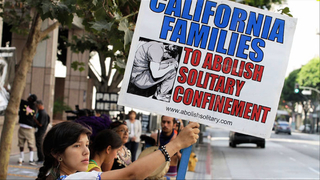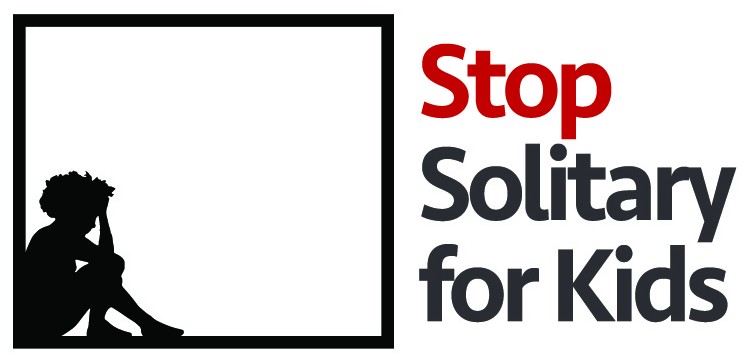WASHINGTON, D.C. – COMPREHENSIVE YOUTH JUSTICE AMENDMENT ACT (2017),
D.C. 21-0238, Law 21-238
On April 7, 2017, the Comprehensive Youth Justice Amendment Act of 2016 became law as D.C. 21-0238 or Law 21-238. Mayor Muriel Bowser signed the Act on December 7, 2016. The D.C. Council heard testimony on the bill in June 2016 and approved it on October 11, 2016. The Act, sponsored by DC Councilmember Kenyan McDuffie, makes several improvements in the D.C. juvenile justice system, including placing limitations on solitary confinement. These limitations ban solitary confinement as punishment, require staff to try less restrictive options first, require facilities to collect and report detailed data about how they are using solitary, and cap solitary confinement at six hours.
Read the Judiciary Committee’s Report
Read Councilmember Kenyan McDuffie’s Press Release
CALIFORNIA – SENATE BILL 1143 (2016)
In April 2016, California Senator Mark Leno introduced SB 1143, legislation to ban the use of room confinement for the purposes of punishment, coercion, convenience, or retaliation and to limit its use to situations where less restrictive options have been tried. In August 2016, the California State Legislature passed SB 1143. Governor Brown signed the bill into law on  September 27, 2016.
September 27, 2016.
Co-sponsored by the Chief Probation Officers of California, human rights advocates, experts on youth rehabilitation, and faith leaders, this bill represents a multi-year effort in California. The California Attorney General Kamala Harris supported the bill, stating that isolation for youth “undermines the goal of helping this vulnerable population become healthy and productive members of society.” Click here to read more from the LA Times Editorial Board.
SB 1143 provides a uniform definition of “room confinement” as the placement of a youth in a sleeping room or cell alone with minimal contact from facility staff. In addition, the bill requires that room confinement is limited to four hours generally, can only be used after all less restrictive options have been exhausted and cannot be used to the extent that it compromises the mental and physical health of the youth. See final law.
COLORADO – HOUSE BILL 1328 (2016), now C.R.S. 26-20-103 (2016)
On May 10, 2016, Colorado passed legislation that limits the use of solitary confinement in state-run juvenile facilities. House Bill 1328 limits the use of solitary in the case of an emergency, which is defined as a “serious, probable, imminent threat of bodily harm to self or others where there is the present ability to effect such bodily harm.” The approval of a qualified mental health professional and the approval of the Director of the Division of Youth Corrections must be secured for a youth to remain in seclusion beyond four hours. A court order is required to keep a youth in solitary confinement for eight hours. The bill requires the Colorado Division of Youth Corrections to document the use of solitary confinement and to create a youth seclusion working group including experts from the community. Click here and here to read more.
Unfortunately, a report released in March 2017, by the Colorado Child Safety Coalition showed that abusive practices were still occurring in the Colorado Division of Youth Corrections. Bound and Broken: How DYC’s Culture of Violence is Hurting Colorado’s Kids and What to Do About It found high rates of isolation and staff use pain-compliance techniques, straitjackets, and knee strikes on youth. The Report makes and policy recommendations, including a call for a pilot program in DYC based on the Missouri Approach, a highly-successful model used by several states that has resulted in safer facilities with far fewer assaults against both staff and youth, while maintaining low recidivism rates and high educational outcomes. The coalition also released a video featuring footage of some of these practices and the perspective of a young person. Read and watch the resources below to learn more:
NEBRASKA – LEGISLATIVE BILL 845 (2016), now Nebraska Revised Statute 83-4,134.01 (2016)
On April 7, 2016, Nebraska passed legislation that will go into effect on July 21, 2016. The law will require all facilities that house youth to gather and report detailed data on all instances of room confinement that exceed one hour. Facilities must submit quarterly reports to the Legislature and the Inspector General of Child Welfare must review this data and prepare annual reports to the legislature. In January 2016, the ACLU of Nebraska’s report, “Growing Up Locked Down,” found that juveniles are kept in isolation for up to 90 days in some facilities, while other facilities don’t even know how often or how long juveniles are deprived of contact with other people.
